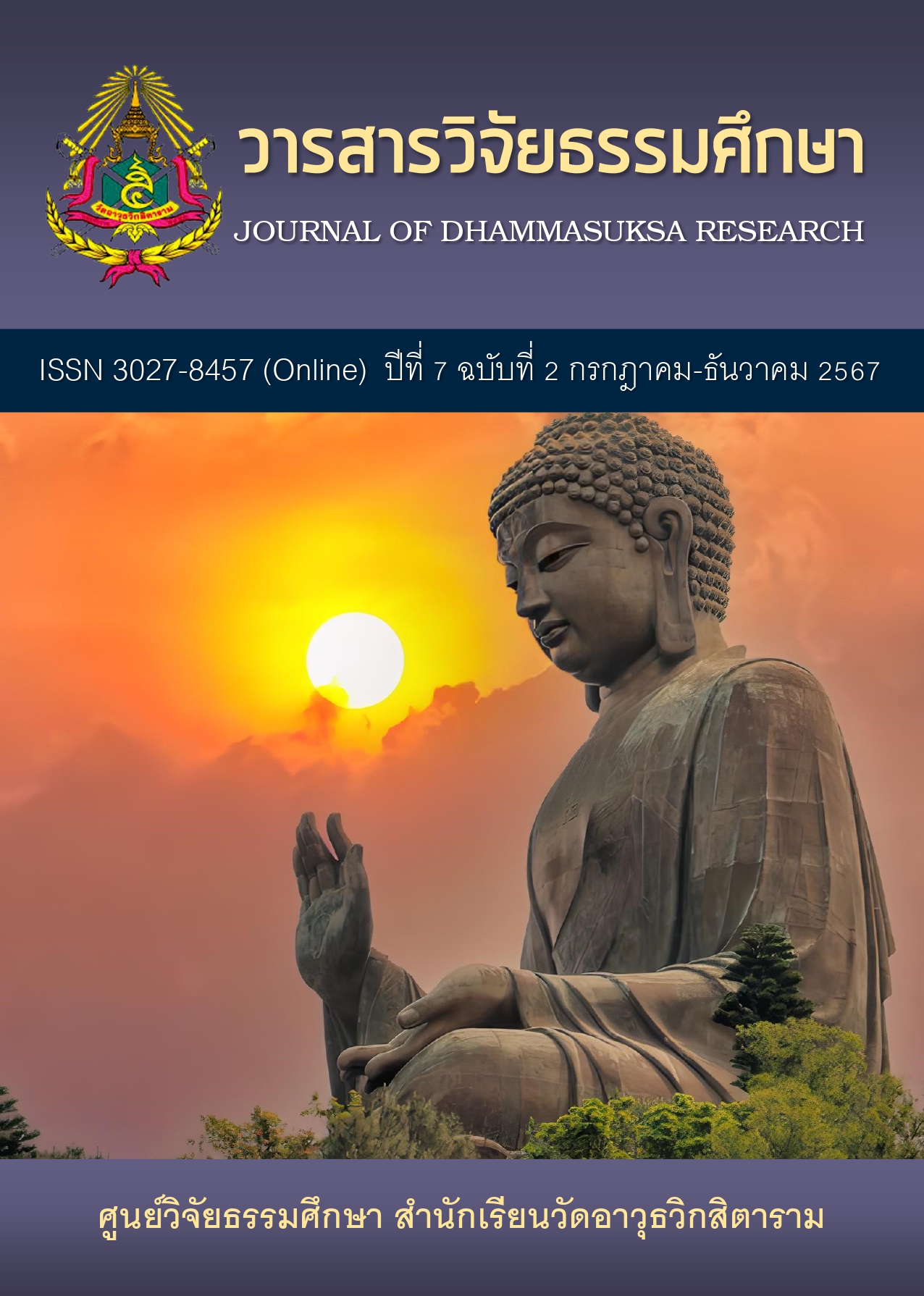Discourse Analysis “Doing Good but Good Things Never Happen, Doing Evil but Good Things Happen” according to Kalama Sutta
Keywords:
Discourse, Doing Good, Doing Evil, Doing Good but Good Things Never Happen, Doing Evil but Good Things HappenAbstract
The objective of this article was to analyze the discourse “Doing Good but Good Things Never Happen, Doing Evil but Good Things Happen” according to Kalama Sutta. The methodology was based on the qualitative philosophical approach by studying and compiling the information from Tripitaka, all related documents and research papers. The results showed that: 1. one who believed that “doing good but good things never happen, doing evil but good things happen” interpreted this meaning based on material interest and emotional response; 2. The word “doing good but good things will happen” in the Buddhism philosophy meant the charity, not material interest or emotional response to greed; and 3. “Doing good but good things will happen, doing evil but bad things will happen” was actual. Doing good but good things never happen, doing evil but good things happen was only the emotional discourse when one felt disappointed in his/her material interest and emotional response only.
References
กระทรวงศึกษาธิการ, กรมการศาสนา. (2521). พระไตรปิฎกภาษาไทย ฉบับหลวง. กรุงเทพฯ : โรงพิมพ์การศาสนา.
มหาวิทยาลัยมหาจุฬาลงกรณราชวิทยาลัย. (2566). ผลวิจัย มจร พบชาวไทยเชื่อทุจริตลดทอนกรรมได้ด้วยการทำบุญบริจาค. สืบค้นเมื่อวันที่ 3 เมษายน 2566. สืบค้นจาก https://www.mcu.ac.th/news/detail/9255
เมธา หริมเทพาธิป, ผศ.ดร. (2566). เอกสารประกอบการสอนรายวิชาปรัชญาและจริยศาสตร์หลังนวยุค (PHE 9104). สาขาปรัชญาและจริยศาสตร์ บัณฑิตวิทยาลัย: มหาวิทยาลัยราชภัฏสวนสุนันทา.
พระภาวนา วิริยะคุณ (2566). “จริงหรือ ทำดีได้ดีมีที่ไหน ทำชั่วได้ดีมีถมไป”. สืบค้นเมื่อวันที่ 22 มีนาคม 2566. สืบค้นจาก https://www.kalyanamitra.org/u-ni-boon/aug47/c23.htm
นัฏกร อาชะวะบูล. (2545). “ศึกษาหลักกรรมในพระพุทธศาสนาเถรวาทที่ปรากฏในละครโทรทัศน์ : เฉพาะกรณีเรื่อง เจ้ากรรมนายเวร”. วิทยานิพนธ์ปริญญาพุทธศาสตรมหาบัณฑิต. บัณฑิตวิทยาลัย : มหาวิทยาลัยมหาจุฬาลงกรณราชวิทยาลัย.
Downloads
Published
How to Cite
Issue
Section
Categories
License
Copyright (c) 2024 Journal of Dhammasuksa Research

This work is licensed under a Creative Commons Attribution-NonCommercial-NoDerivatives 4.0 International License.



